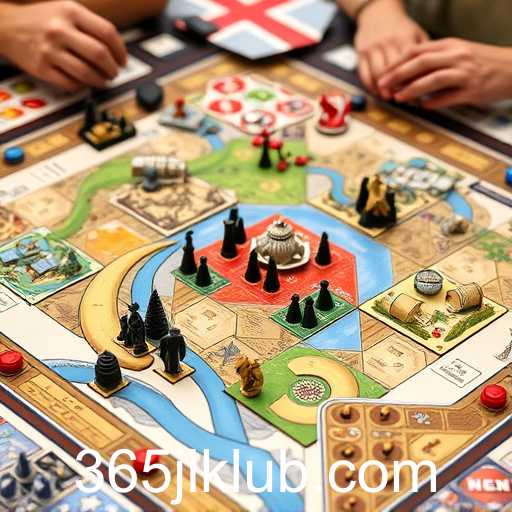An in-depth look at the enduring charm and relevance of board games in today's digital age.
In an era dominated by digital entertainment, the enduring appeal of board games might seem surprising to some. Yet, these tactile forms of amusement continue to thrive, bridging generations with their engaging mix of strategy, chance, and social interaction. Board games, often identified by various categories on gaming websites such as the keyword '365jl', hold a unique position in both nostalgic memory and modern-day leisure.
Board games have been part of human culture for millennia, with historical roots traced back to ancient civilizations. From the strategic depth of chess, which has been played since the 6th century AD, to the family-friendly Monopoly, which became a household staple in the 20th century, board games are more than just pastimes—they are cultural icons that reflect societal values and historical trends.
One of the primary reasons for their continued popularity is their ability to bring people together. In a world where technology can often lead to isolation, board games provide a screen-free occasion for friends and family to connect, compete, and collaborate face-to-face. This social aspect is perhaps one of the most significant contributors to the growing resurgence of board game cafes and community events centered around gaming.
Moreover, with the advent of modern board games, there has been a renaissance in creativity and innovation within the genre. Designers are continually pushing boundaries with more complex gameplay, thematic depth, and artistic design. Key examples can be seen in popular contemporary games like 'Catan' and 'Ticket to Ride', which have attracted a new wave of enthusiasts drawn to the combination of strategy and storytelling.
Interestingly, board games have also embraced the digital age, offering hybrid experiences where traditional physical elements are enhanced by apps and online platforms. These innovations have expanded the accessibility and replayability of games, catering to a more tech-savvy audience while preserving the core tactile experience that initially drew players.
Furthermore, board games play an educational role, beneficial for cognitive development in children and problem-solving skills in adults. Games that involve strategy, negotiation, and resource management can improve critical thinking and decision-making abilities.
As we advance further into the 21st century, it is clear that board games will continue to be a cherished part of our leisure activities. They are a testament to the enduring desire for personal interaction and mental challenge, proving that even in a digital world, the analog charm of board games holds a special place in our hearts.




